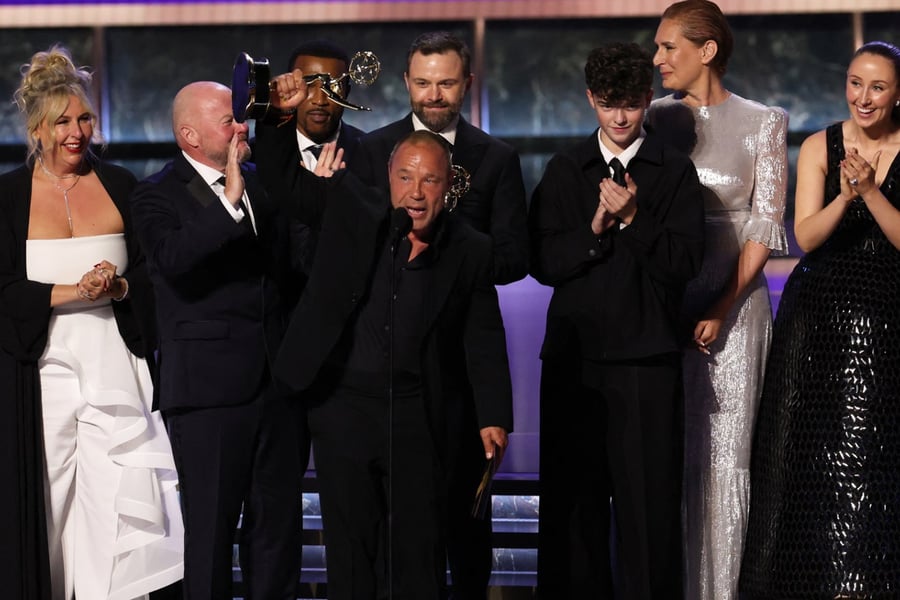Netflix’s hit limited series Adolescence isn’t just the talk of the town anymore — it’s also an Emmy Award-winning show.
Adolescence took home the Emmy Award for Outstanding Limited or Anthology Series on Sunday night, beating out a crowded field of fellow nominees including The Penguin, Black Mirror, Dying For Sex, and Monsters: The Lyle and Erik Menendez Story.
Series co-creator and star Stephen Graham accepted the award, paying tribute to everyone who worked on the show, from the executive producers to the “fella that was cleaning the toilets in our Winnebagos.”
“This was a huge collaboration,” Graham said. “What we do, it’s not a game of footy. There is no winners and there is no losers. It’s all subjective. But what we managed to create was a beautiful family. And whether you was number one on the call sheet or number 101, we were treated equally and everyone was respected… We’re all the same, and I think that’s how you get the best work, and the best out of your people.”
The Outstanding Limited Series win capped off a huge night for Adolescence, which won six Primetime Emmy Awards in total (plus a bunch of Creative Arts Emmys last week). Graham also won an acting prize for his work on the show, as did his co-stars Owen Cooper and Erin Doherty.
Almost immediately after Adolescence was released on March 13, the show captured widespread online attention for its focus on teenage radicalization. Each of the four episodes was shot in one continuous take, and dragged audiences through the life of 13-year-old Jamie Miller (Cooper) after he is arrested on suspicion of murdering his classmate. The show immediately struck a nerve online for its focus on misogyny-based violence and the radicalizing force of mansphere content.
“My job was to sit in Jamie’s shoes,” co-creator Jack Thorne told Rolling Stone in March. “But the most troubling thing was reading, watching, consuming, being pelted with this stuff, I felt like I understood the logic of it. When I was a 13-year-old kid, I looked around and I felt unattractive, I felt uninteresting, I felt instinctively lonely. If I heard that the reason for this was female ideology, that would have been very attractive.”
Love Music?
Get your daily dose of everything happening in Australian/New Zealand music and globally.
From Rolling Stone US



































